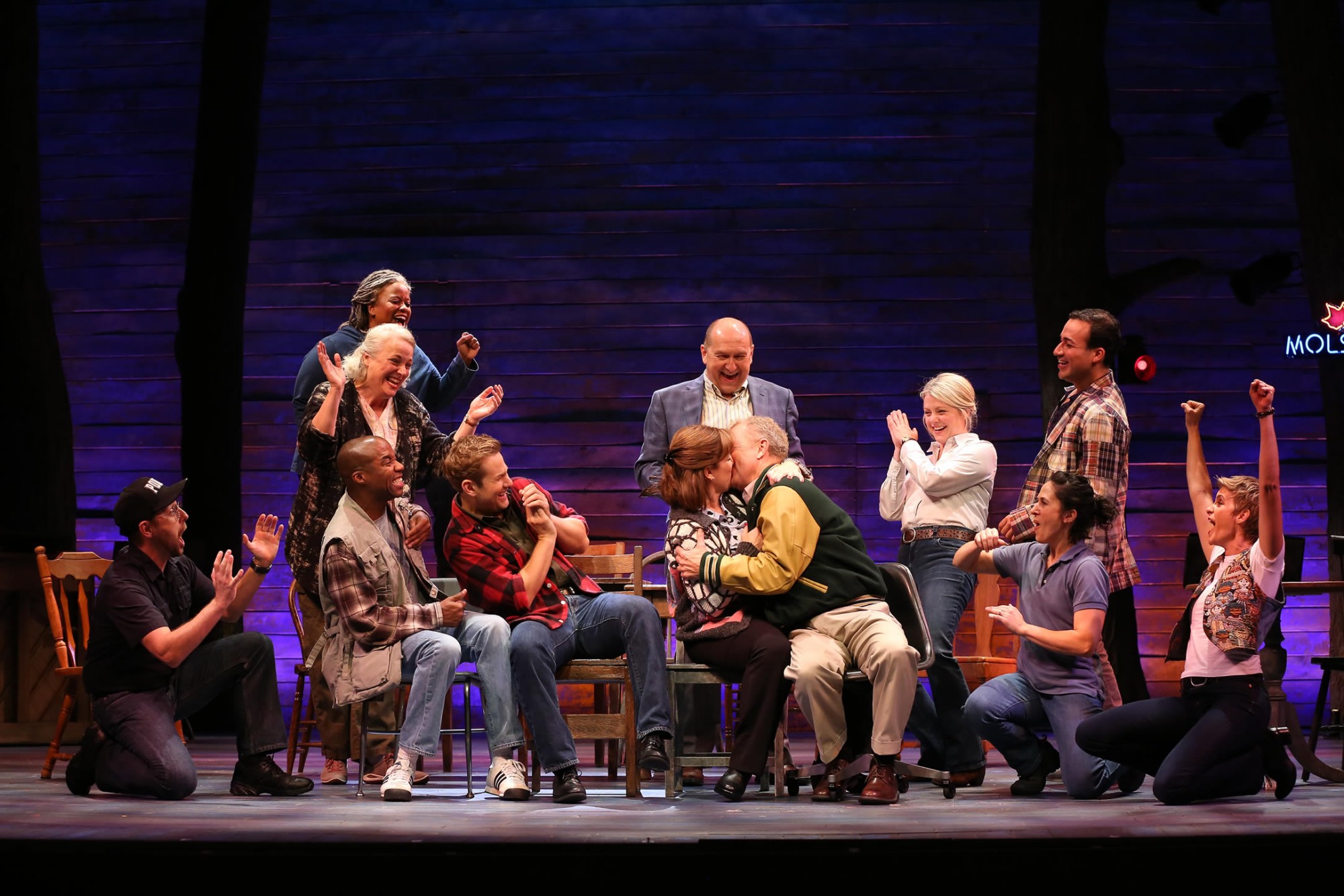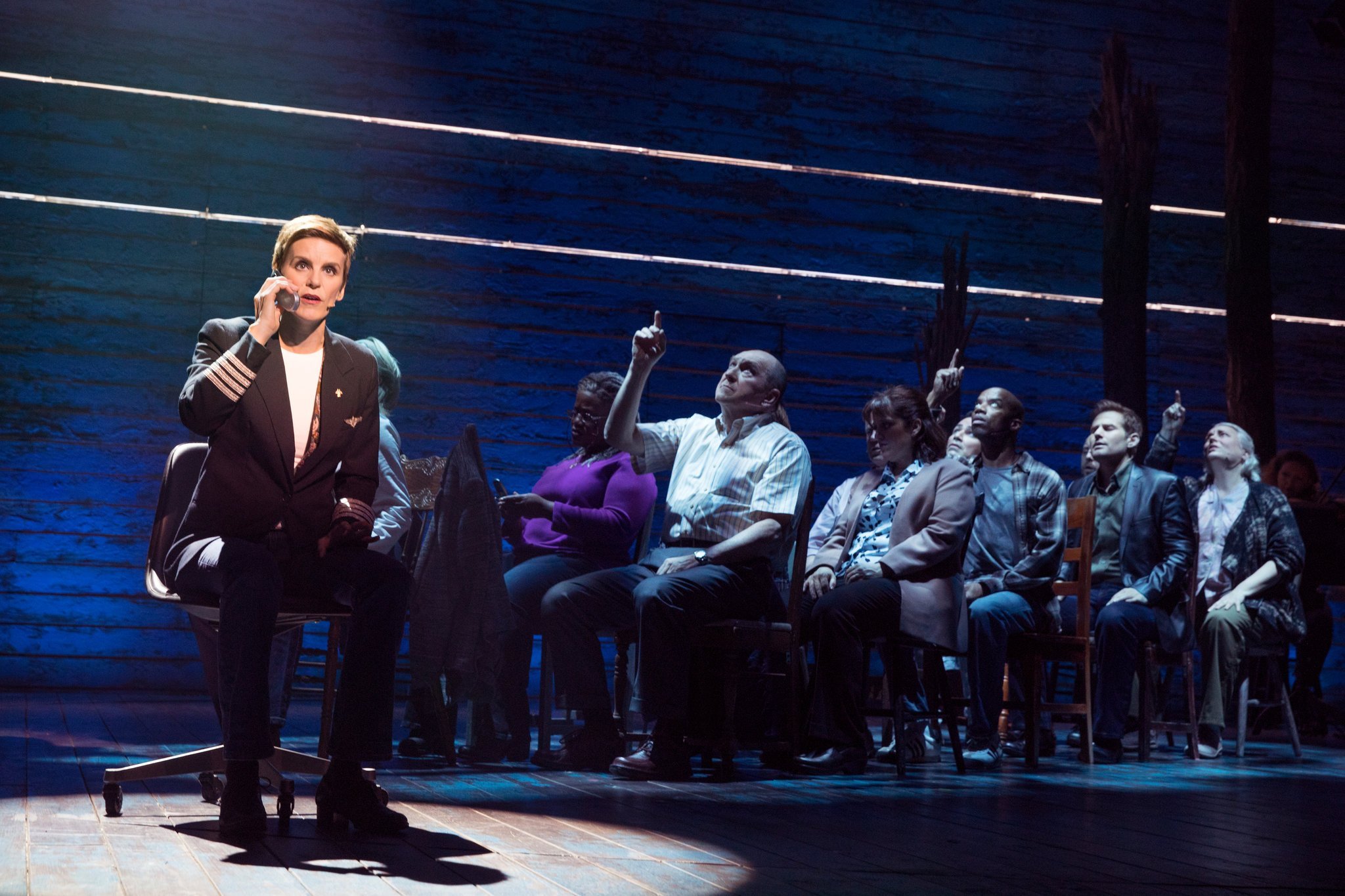Whenever significant historical events like 9/11 occur, the first question that pops up is almost always, “Where were you?” And people remember. They were in the line at the grocery store, dropping their kids off at school or they missed their taxi and were running late to work.
For the town of Gander, Newfoundland, the days following 9/11 welcomed some 7,000 stranded travelers from 38 planes that had to make emergency landings. In the darkness of that time, people opened their homes for the masses. It is this story of humanity’s goodness that the musical “Come From Away” surrounds, filled with true accounts of what happened in Gander in the days after the attacks.
A Brief History
Gander, Newfoundland, is home to Gander International Airport, which was once the largest airport in North America. It was the stopping point for planes to fuel up for crossing the ocean before they had jet planes. In 2001, the town had a population of less than 10,000 people.
When those planes crashed into the towers, the United States shut down the skies. All planes were forced to make emergency landings. With few options available, Canada enacted Operation Yellow Ribbon to help civilian planes and landed them in various places across Canada, including in Gander, Newfoundland.
When those 38 planes landed, they were met by the townspeople working overtime to give those on the planes food, clothes and places to sleep. The bus drivers who had been on strike in Gander paused to help the hordes of people get to places, and, somehow, they were able to help care for the 17 pets on the planes, including two apes.
On the 10-year anniversary of the attacks, those on the planes that stopped in Gander returned to the town to say thank you for the kindness the townspeople showed to them. Individual stories of this hospitality are everywhere, and writers Irene Sankoff and David Hein used their interviews with townspeople and “plane people” to supply what would become “Come From Away.”
“Come From Away”
The names and stories used in “Come From Away” are real, though keep in mind that some of the stories are adjusted for storytelling purposes. However, the musical keeps the displays of humanity as close to reality as they could.
The residents of Gander in the musical open with the song “Welcome to the Rock,” where they recount what each of them was doing when they heard about the attacks in New York. Their fear is followed by the sudden calls saying that they would be providing shelter for people needing to land in Gander International.

They set to work in “Blankets and Bedding,” collecting all the items that they possibly could for those who were getting off the planes. They open their homes and other buildings, erecting tents and whatever shelters they could find. It’s a good thing Gander International is also huge; it houses many of the passengers. Many of the townspeople didn’t sleep that night. Instead, they made breakfast from early in the morning until lunchtime because the plane people had come from all different time zones.
And the people on the planes didn’t know why they were even landing. Only the late news that night allowed them to see what had happened. “Lead Us Out of the Night” is just under two minutes long, but it packs a punch. Their shock is palpable, and their reactions are particularly unnerving because the audience knows exactly what happened.
The emotion shifts in “In the Bar/Heave Away” and “Screech In.” The people need a release after being cooped up for too long, and holding karaoke at the bar is clearly the best idea. As the weary travelers sing the chanty “Heave Away,” the unifying power of music begins to take effect, and soon the plane people are kissing a cod to become honorary Newfoundlanders. It’s a wild celebration of humanity, but a celebration nonetheless.
Not all the displays of humanity are good in the musical, however. The strain on the plane people affects relationships, both breaking and making them. And “Come From Away” displays the negative attitudes toward Muslims immediately in the aftermath of the attacks. One Muslim character experiences verbal abuse from a few of the other passengers while he tries to pray in the songs “Prayer” and “On the Edge.”
That terrible behavior is unfortunately a piece of all humans, though it certainly does not excuse it in any way. But the reaction of one of the citizens in Gander shows the upside again. In “Prayer,” she goes and tells him that the library is open for a quiet place to pray if he would like, away from judgmental eyes.
“Come From Away” is important because of the stories that it tells about the world at that time and what the world is like years after the events. The “Finale” presents a beautiful view of people whose lives a decade later still feel the reverberations of their time in Gander. The heart of this musical is the heart of humanity when all hell breaks loose, and overall it holds a more positive outlook for what the world can become.

















